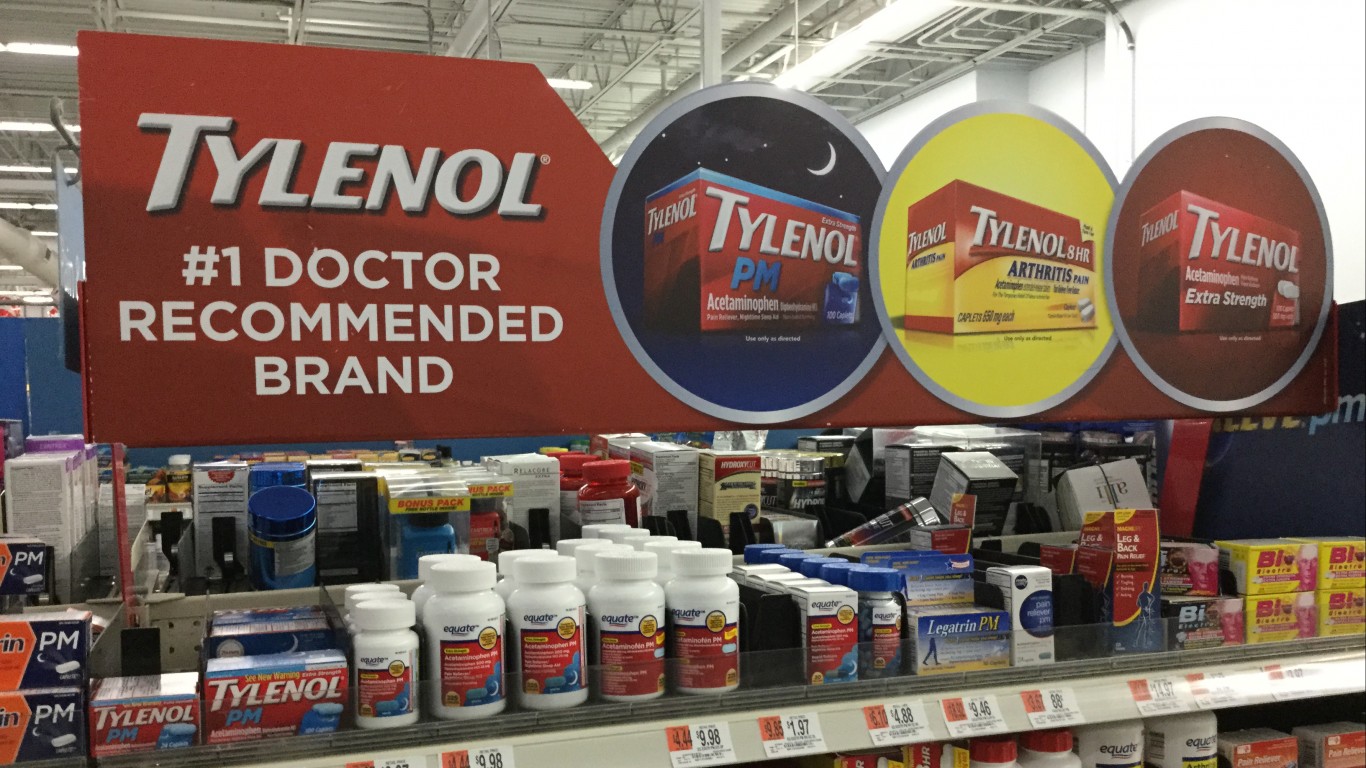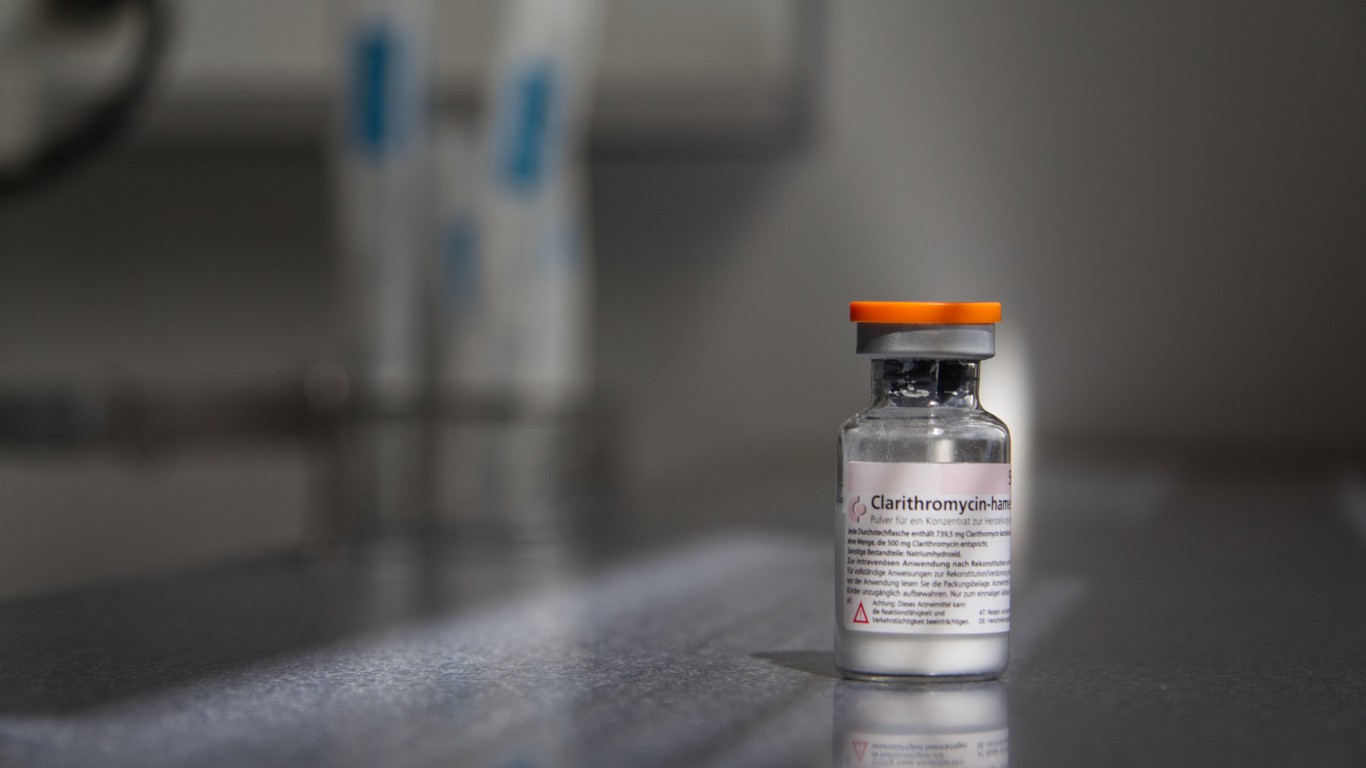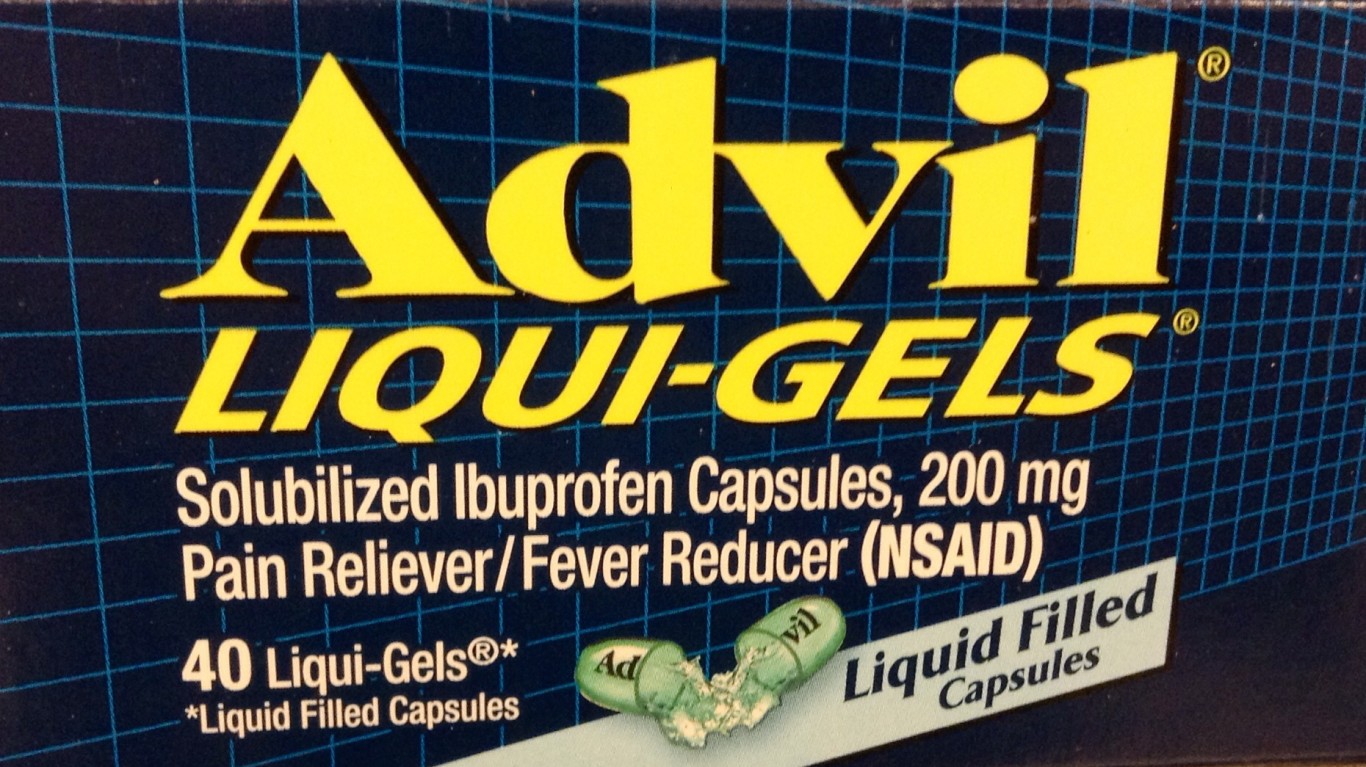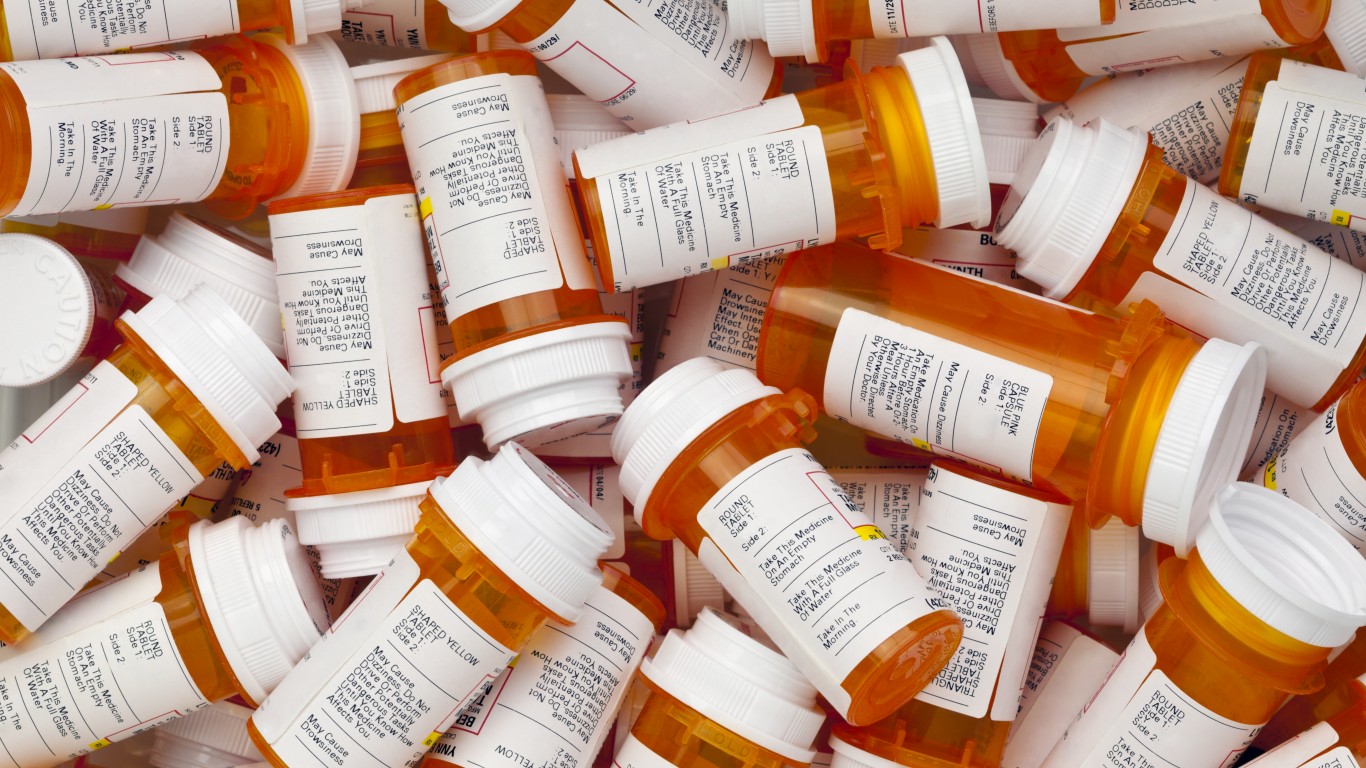
In the 12 months ending in April 2021, an estimated 100,306 Americans died from an accidental drug overdose, the most ever reported in a 12-month period and more than double the annual number of car accidents and firearm deaths combined.
This data, released by the U.S. Centers for Disease Control and Prevention, highlight the effects of the pandemic on the wellbeing of the population, as well as the worsening of the ongoing opioid crisis. This includes the growing presence of dangerous synthetic opioids, most recognizably the powerful painkiller Fentanyl, a drug 50 to 100 more potent than morphine. Between 2013 and 2019, deaths from synthetic opioids increased twelvefold in the United States. These are the counties with the worst drug problem in every state.
While street-produced synthetic opioids and other illicit drugs have certainly fueled the rise in accidental overdose deaths, they are not the only dangerous drugs. Many other drugs, including some seemingly-innocuous over-the-counter medications, can be dangerous.
Drug overdoses are now the leading cause of accidental death in the United States. More Americans die of drug overdoses than in car accidents, which are also frequently the result of substance use — nearly half of fatal car accidents involve alcohol or other substances.
To better understand the likelihood of Americans dying from using a specific drug, it is important to also get a better understanding of the drug itself — its purpose, properties, interactions with other drugs and alcohol, and how often it is used.
The vast majority of people who drink alcohol in the United States — more than half of Americans — do so responsibly. Millions also use pain medication every day and do not stray from their prescribed dosage. And while overdoses from prescription opioids are a major factor in the opioid epidemic, opioids are essential to many Americans who rely on them to function.
The double-edged sword of risks and benefits in prescribing opiates is common to many other drugs as well. Approximately half of all people in the United States use at least one prescription drug on a regular basis.
24/7 Tempo reviewed 25 of the most dangerous drugs and drug mixtures based on side effects and death rates as tracked by the federal government, as well as potential risk of drug combinations according to sources such as MedScape, WebMD, and the American Medical Association. These substances span well-known controlled drugs, infamous street drugs produced in unsafe conditions, and lethal combinations of otherwise safe medications. Many of these drugs, when taken on their own and under the correct conditions, are considered to be generally safe. They are only seriously deadly when combined inappropriately with other drugs or taken in large quantities.
However, no drug is perfectly safe, and some widely-prescribed and popular over-the-counter medications are more likely to pose a risk to more Americans than rare drugs with a higher rate of dangerous side effects simply because they are more accessible. Some of the drugs on this list are a broad category of medication with similar effects and risks, such as NSAIDs and anticoagulants, while others are a single formula. According to doctors, opioids are not the only known effective pain treatment. Here is a list of nine non-opioid treatments approved by physicians.
Click here to see the 25 most dangerous drugs
1. Acetaminophen
> Common names/types: Tylenol, Mapap, Feverall
> Common uses: Pain relief
> Deadly when: Taken in excess, combined with alcohol, other pain meds containing acetaminophen
> Risks: Long-term liver damage, liver toxicity, death
[in-text-ad]

2. Alcohol
> Common names/types: Beer, wine, liquor
> Common uses: Recreation
> Deadly when: Combined with benzodiazepines, many other drugs
> Risks: Liver damage and failure, high blood pressure, death due to impaired motor functions
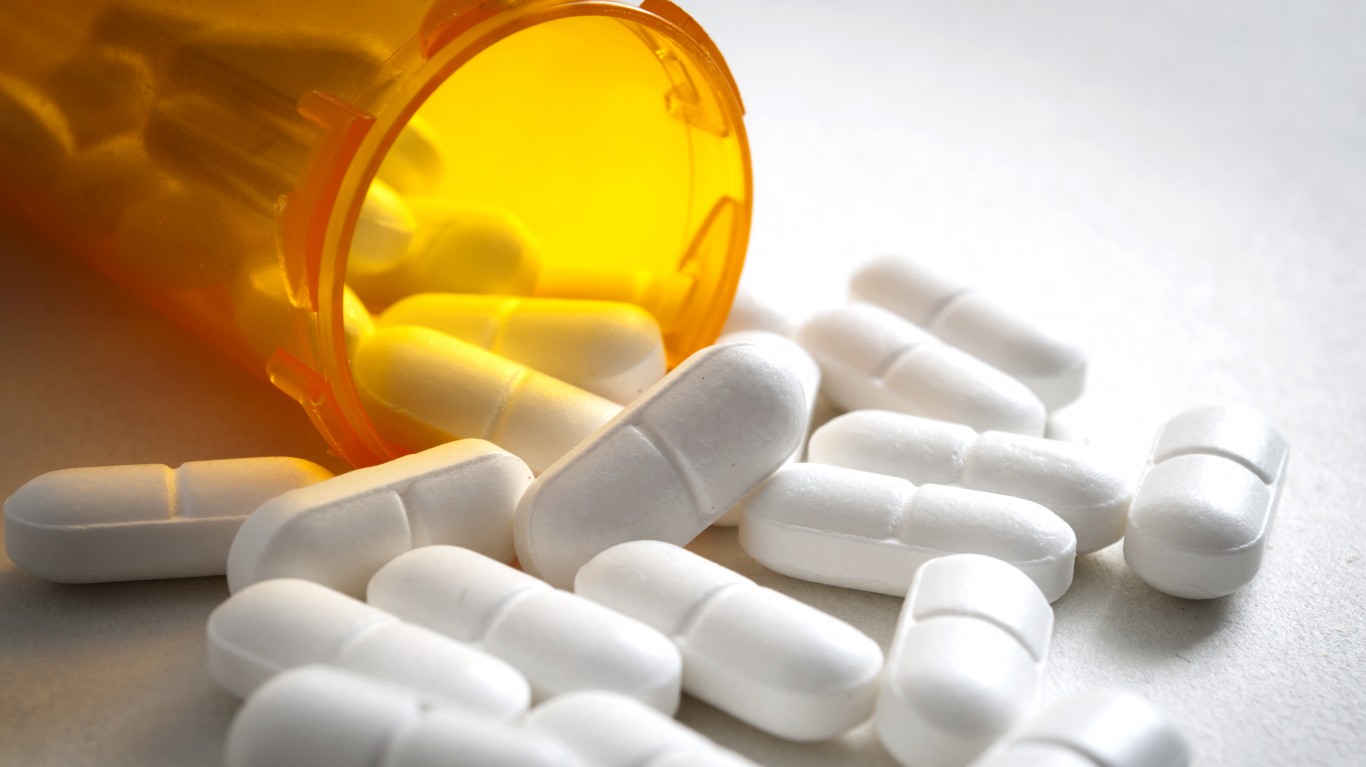
3. Anti-anxiety medication (benzodiazepines)
> Common names/types: Xanax, Valium, Klonopin
> Common uses: Anxiety treatment
> Deadly when: Combined with barbiturates, opioids, or alcohol
> Risks: Overdose, dementia
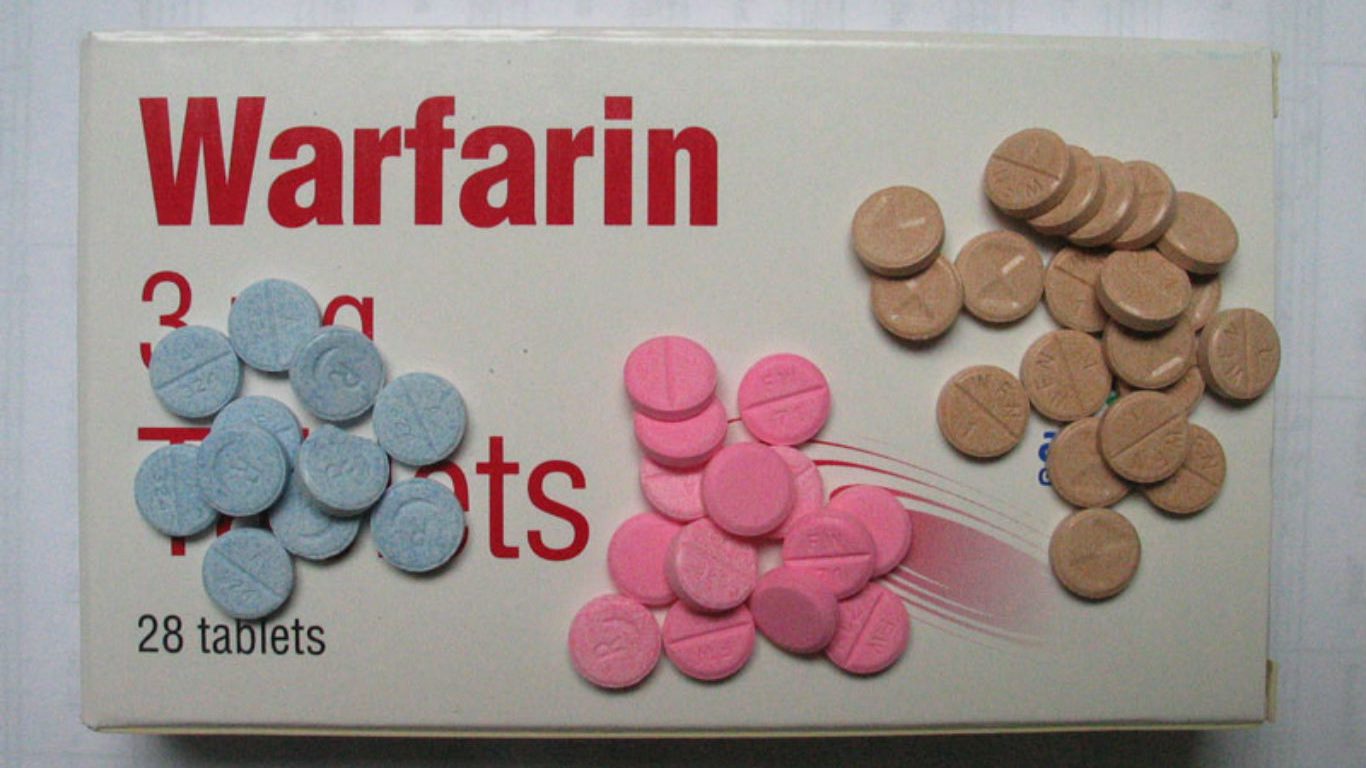
4. Anticoagulants
> Common names/types: Warfarin, Xarelto, Heparin
> Common uses: Blood clot risk
> Deadly when: Combined with Aspirin and other blood-thinning drugs
> Risks: Internal and external bleeding
[in-text-ad-2]
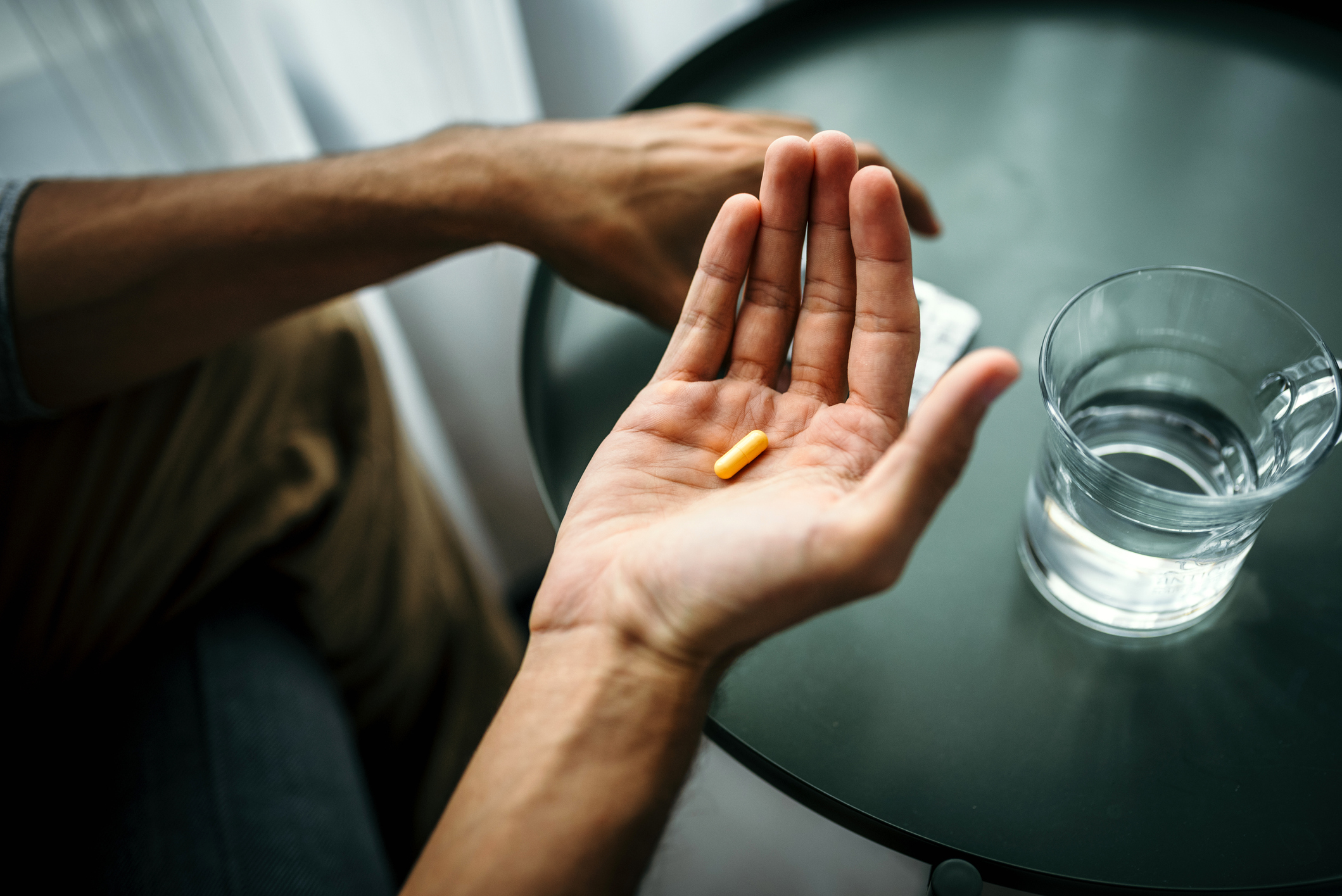
5. Antidepressants (SSRIs)
> Common names/types: Prozac, Lexapro, Paxil, Zoloft
> Common uses: Treatment of depression
> Deadly when: Combined with other drugs that affect serotonin levels, opioids, NSAIDs
> Risks: Serotonin syndrome, suiсide, internal bleeding
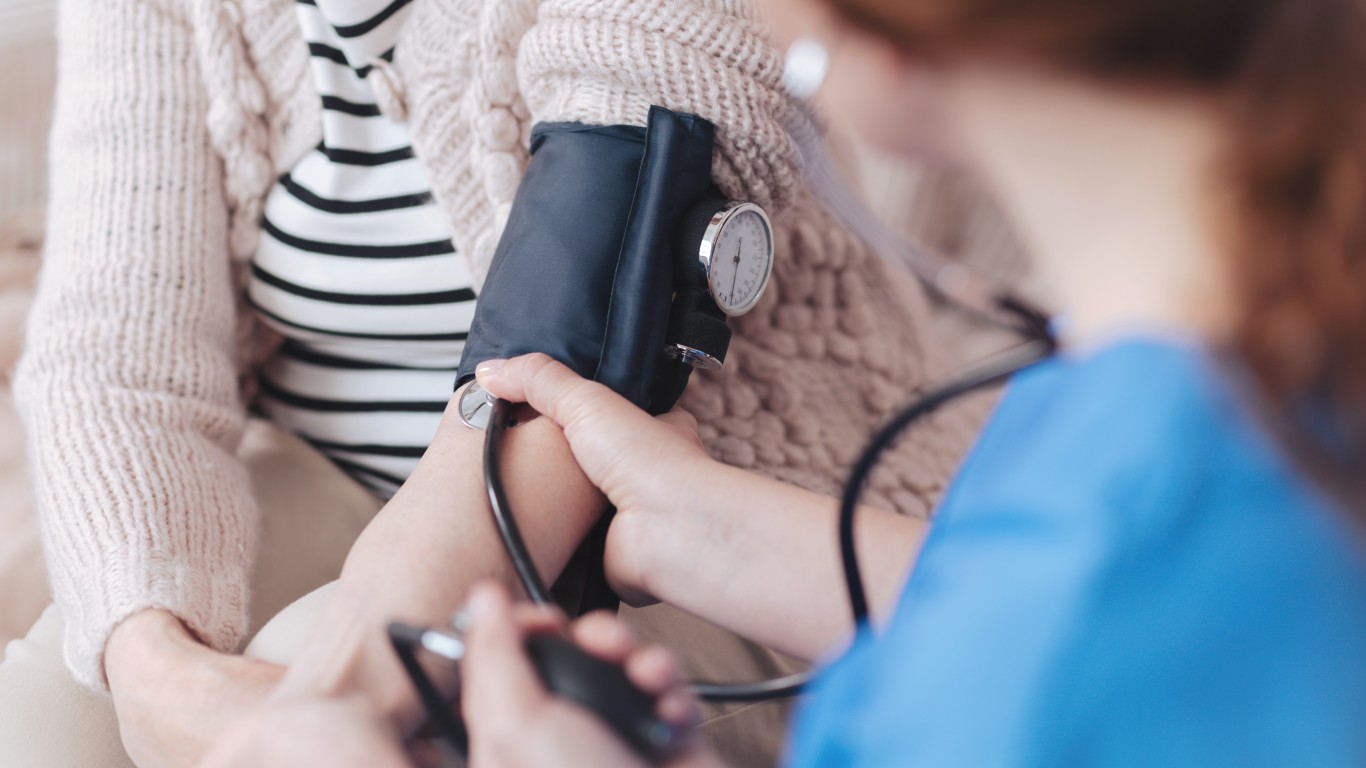
6. Anti-hypertensive drugs
> Common names/types: Hytrin, Cardura, Minipress
> Common uses: High blood pressure
> Deadly when: Combined with NSAIDs and diuretics
> Risks: High blood pressure, acute renal failure, cerebrovascular complications
[in-text-ad]
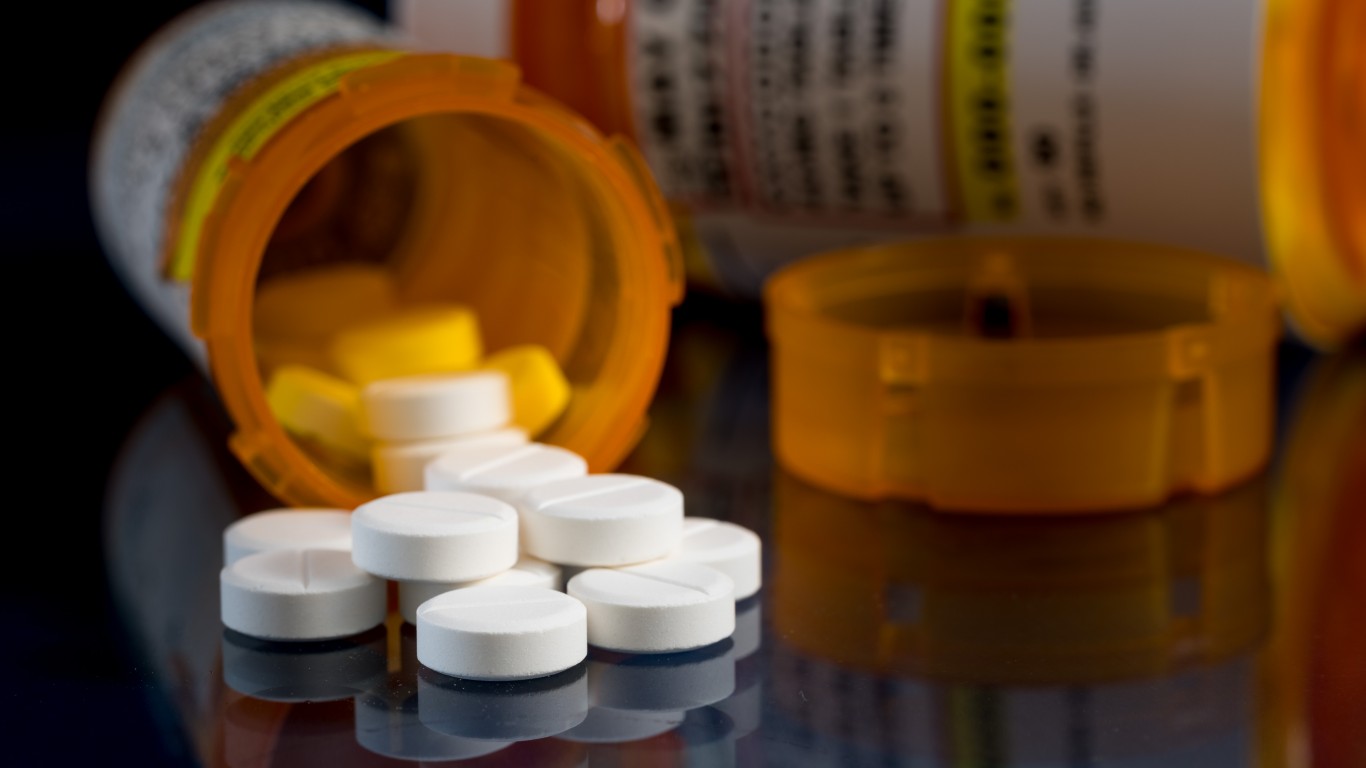
7. Bromocriptine
> Common names/types: Parlodel, Cycloset
> Common uses: Tumors, Parkinson’s disease, type 2 diabetes
> Deadly when: Combined with pseudoephedrine (Sudafed)
> Risks: Bleeding in the stomach, seizures, death
8. Clarithromycin
> Common names/types: Clarithromycin
> Common uses: Antibiotic
> Deadly when: Combined with calcium channel blockers, statins like Lipitor
> Risks: Fatal heart complications
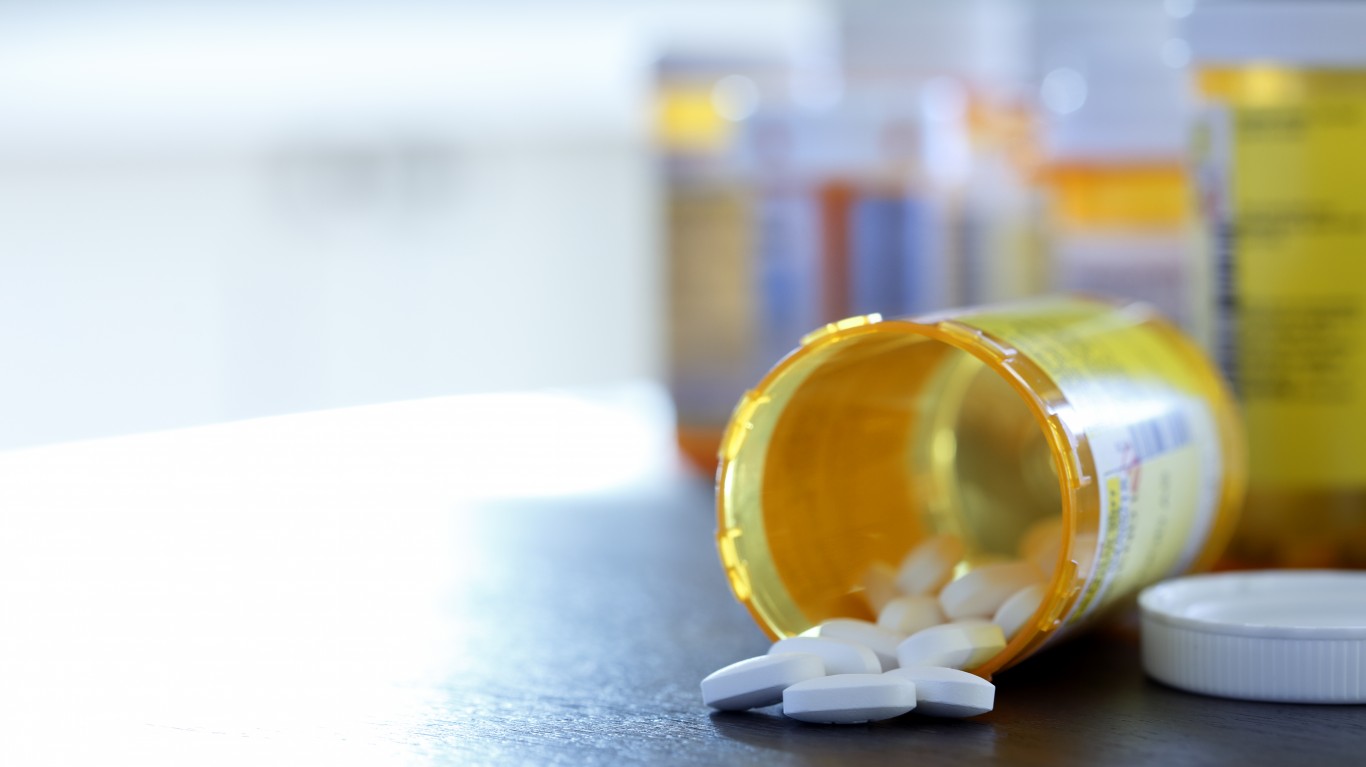
9. Clozapine
> Common names/types: Clozaril
> Common uses: Schizophrenia
> Deadly when: Combined with alcohol
> Risks: Gastrointestinal hypomotility
[in-text-ad-2]
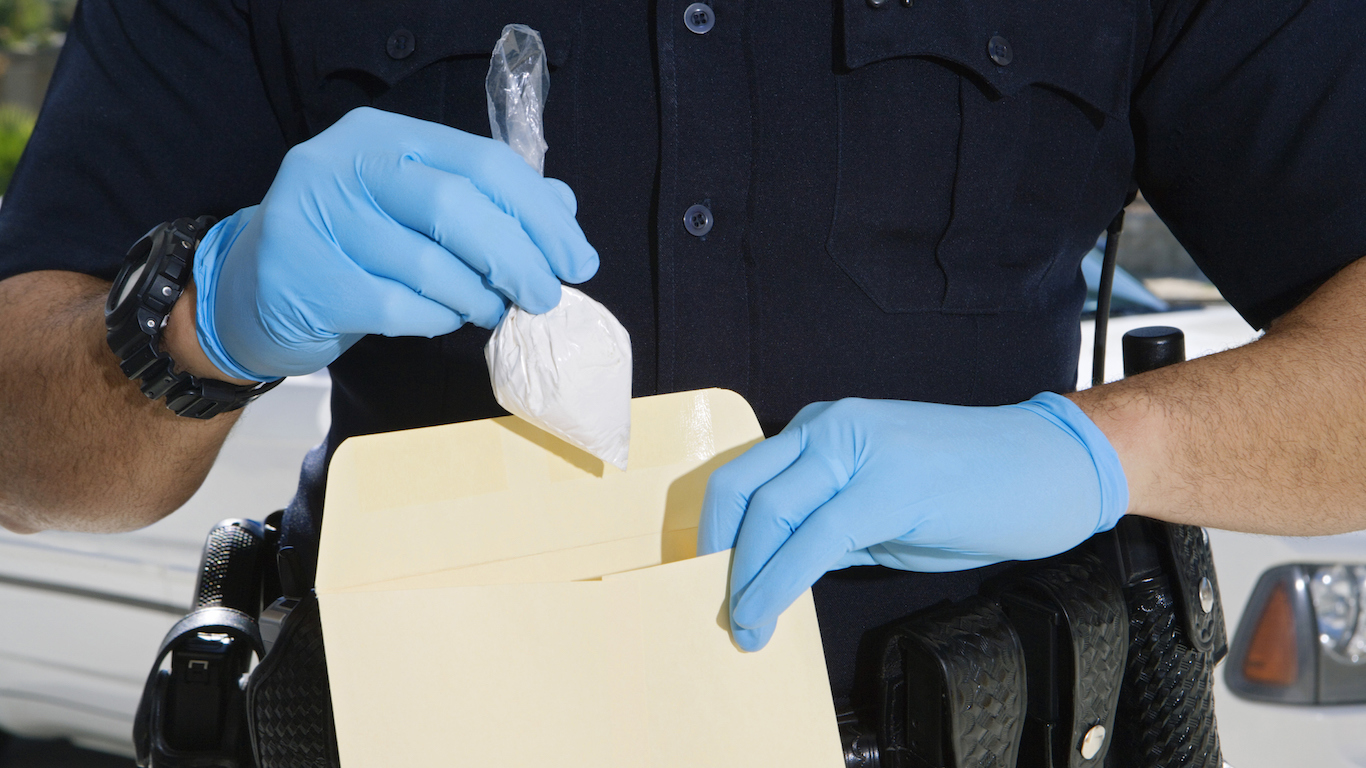
10. Cocaine
> Common names/types: Crack, coke, blow
> Common uses: Recreational stimulant, numbing agent
> Deadly when: Taken in excess, combined with heroin and opiates
> Risks: Death, heart attack, increased blood pressure
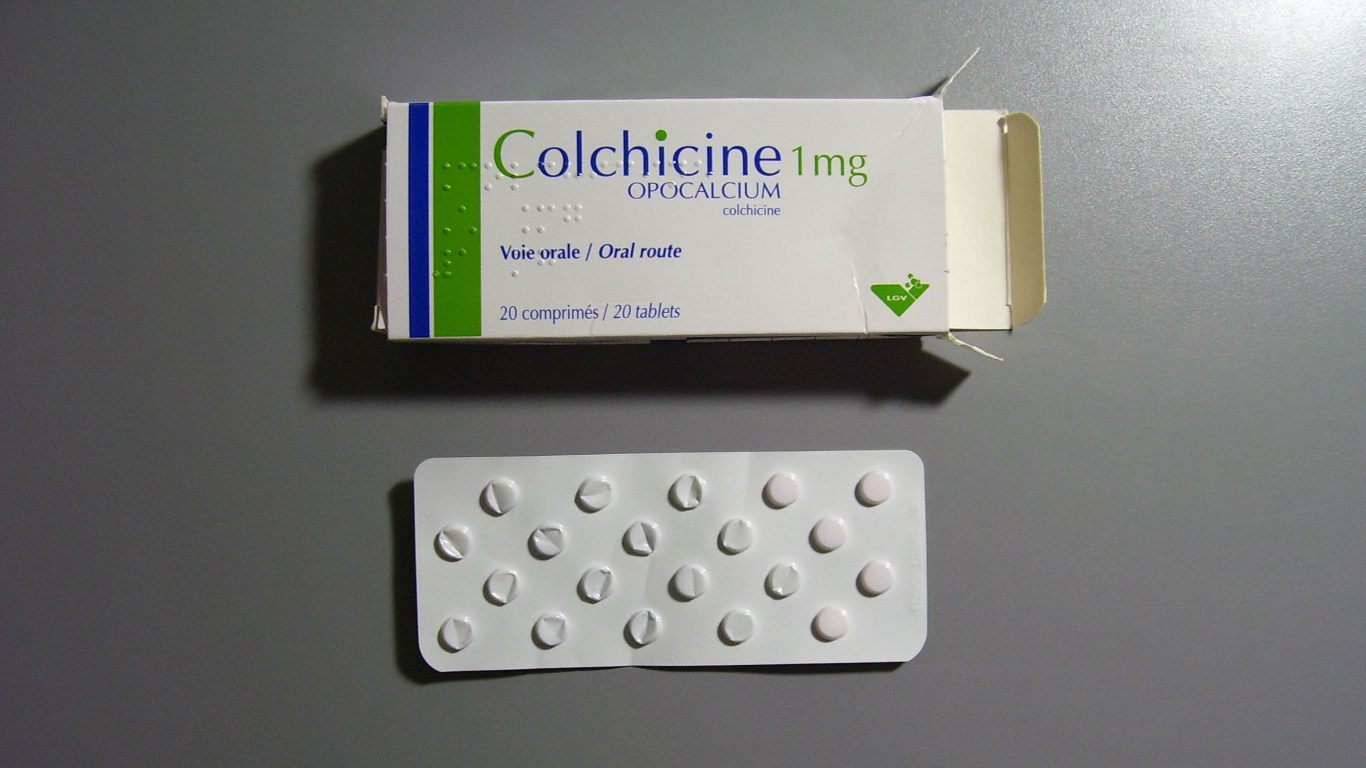
11. Colchicine
> Common names/types: Colcrys, Mitigare
> Common uses: Gout
> Deadly when: Combined with strong CYP3A4 Inhibitors
> Risks: Colchicine toxicity leading to death
[in-text-ad]
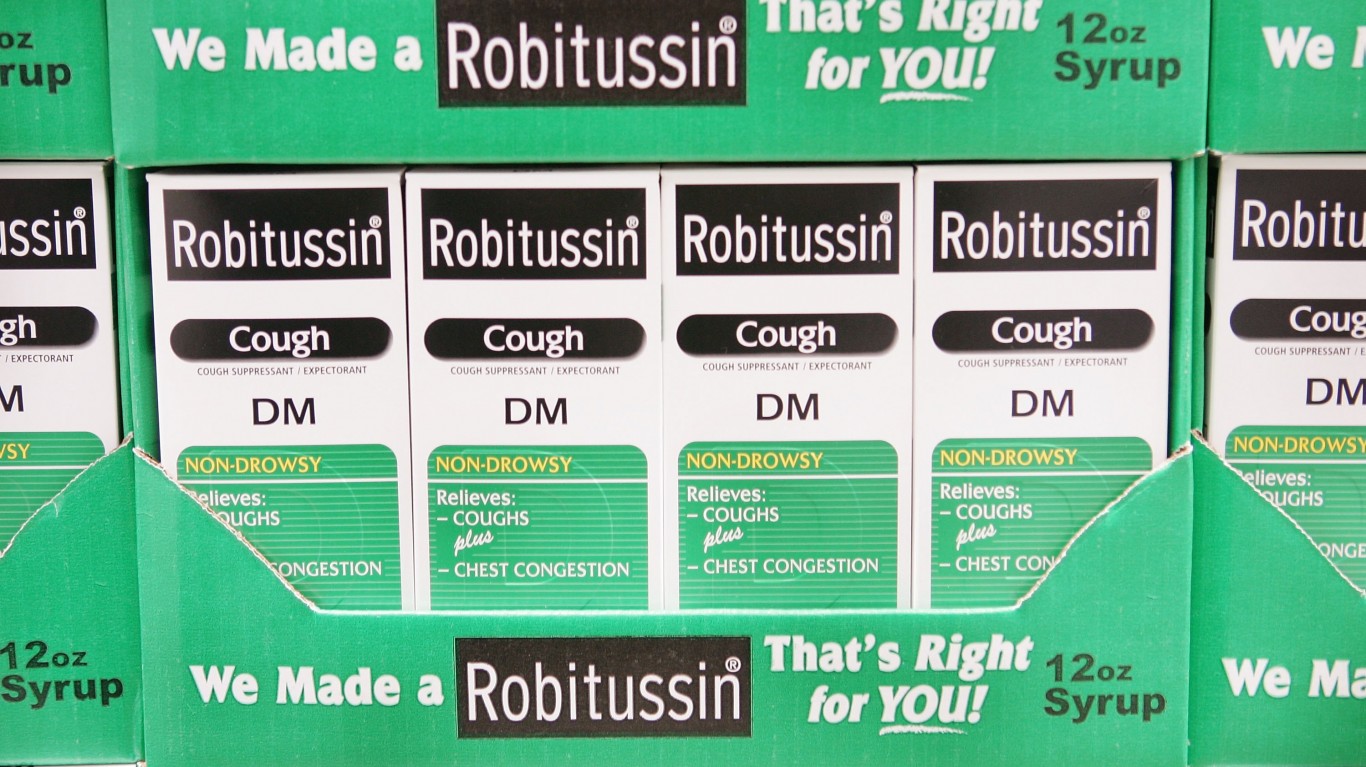
12. Cough medicine
> Common names/types: NyQuil, Robitussin, Theraflu
> Common uses: Cough
> Deadly when: Combined with antihistamines
> Risks: Amplified sedative state leading to accidents
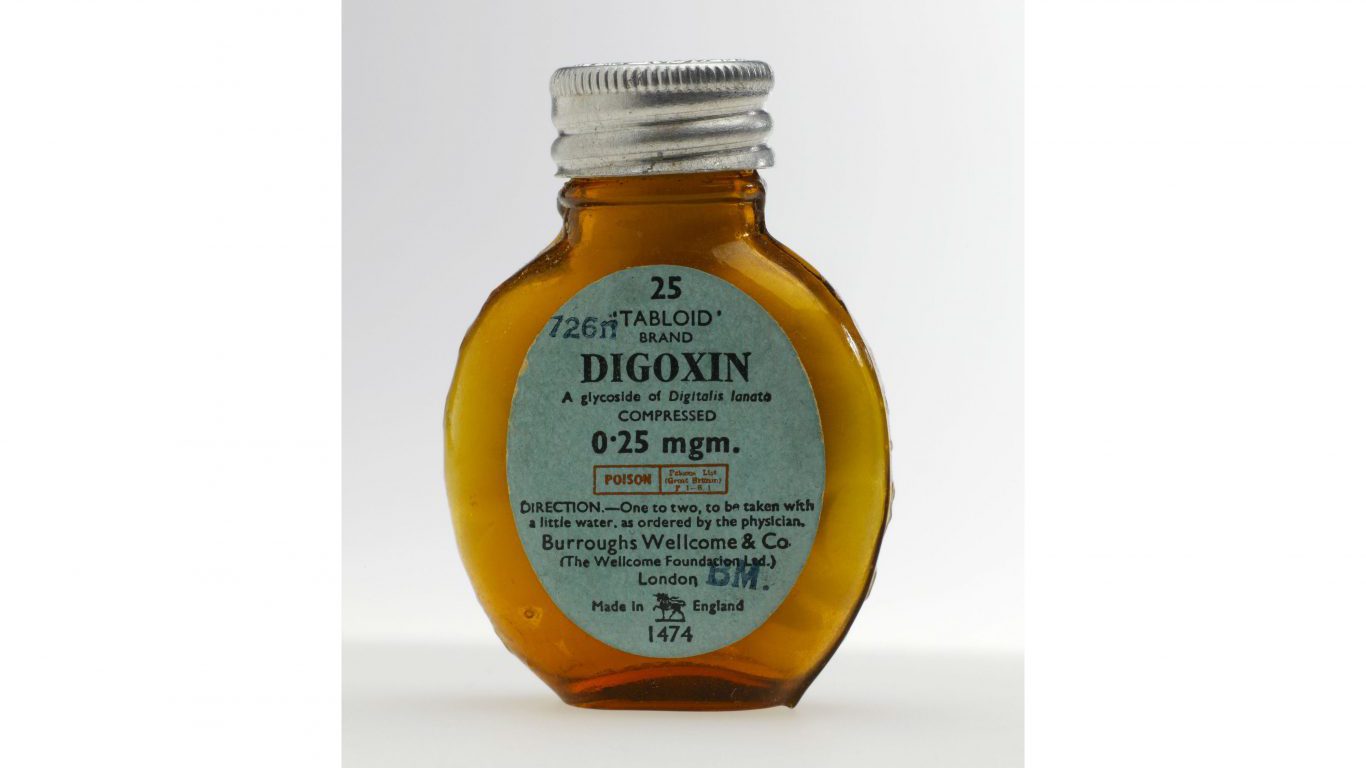
13. Digoxin
> Common names/types: Lanoxin
> Common uses: Heart conditions
> Deadly when: Combined with quinidine
> Risks: Nausea, vomiting, death
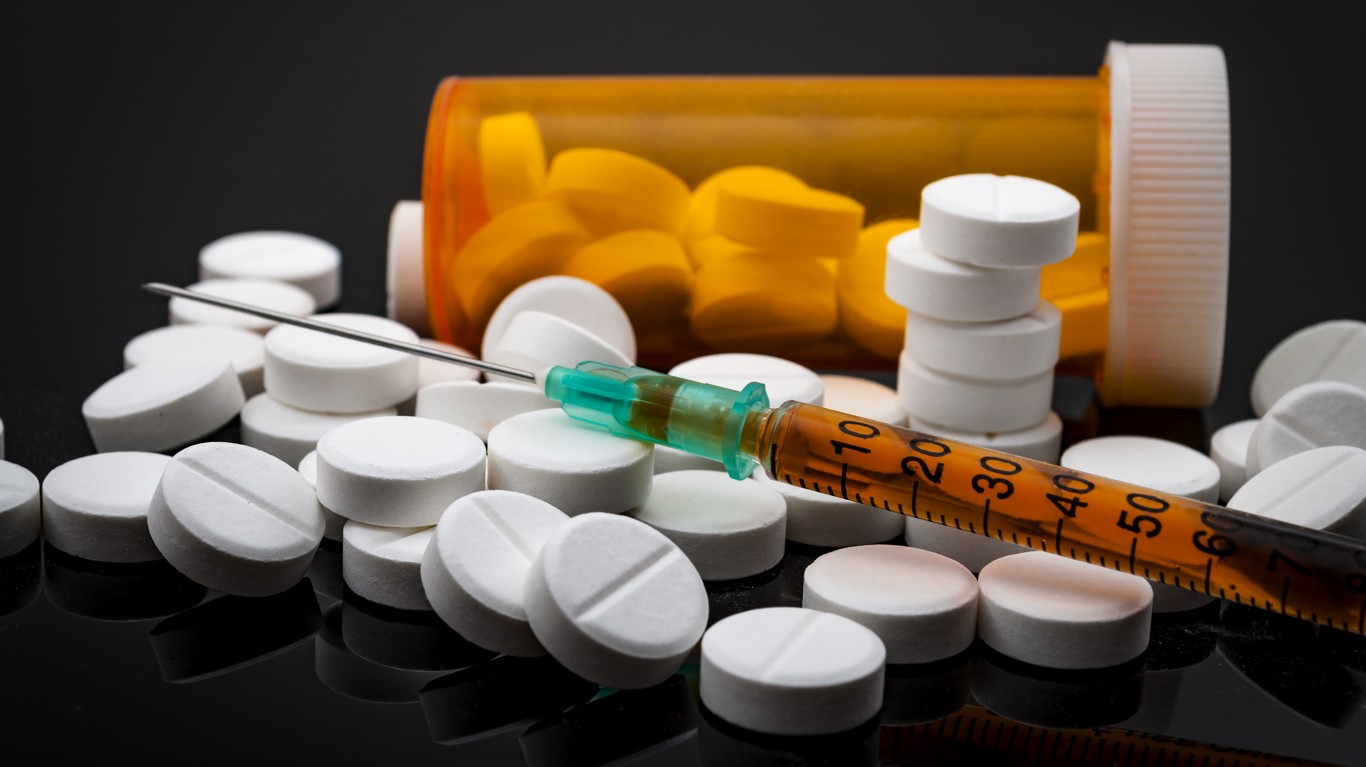
14. Heroin and semi-synthetic opioids
> Common names/types: Percocet, Vicodin, OxyContin
> Common uses: Pain relief
> Deadly when: Taken in excess, combined with cocaine and other drugs
> Risks: Accidental overdose
[in-text-ad-2]
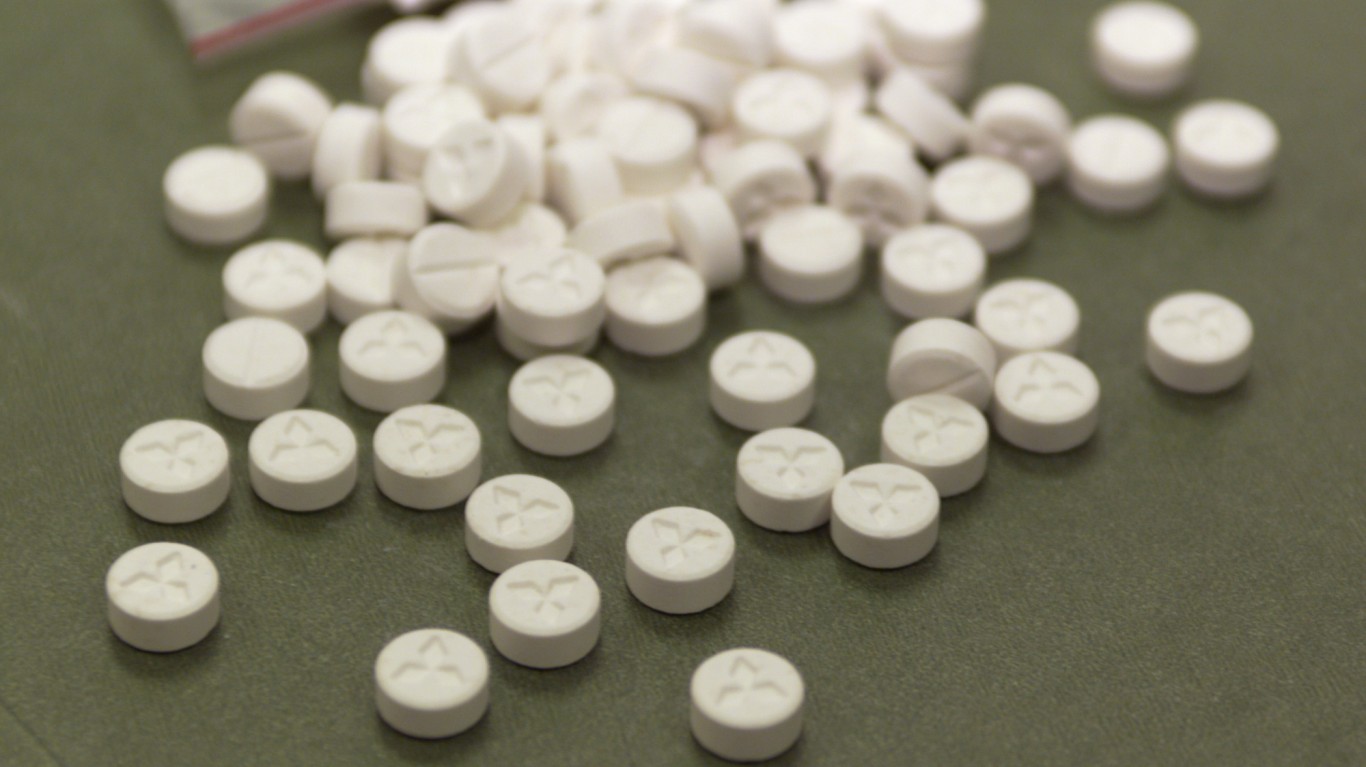
15. MDMA
> Common names/types: Ecstasy
> Common uses: Recreational euphoria
> Deadly when: Taken in excess, combined with alcohol, SSRIs
> Risks: Serotonin syndrome, shock, coma, death

16. Methamphetamine
> Common names/types: Crystal meth, Desoxyn
> Common uses: Stimulant
> Deadly when: Accidental overdose
> Risks: Teeth loss, brain damage, death
[in-text-ad]
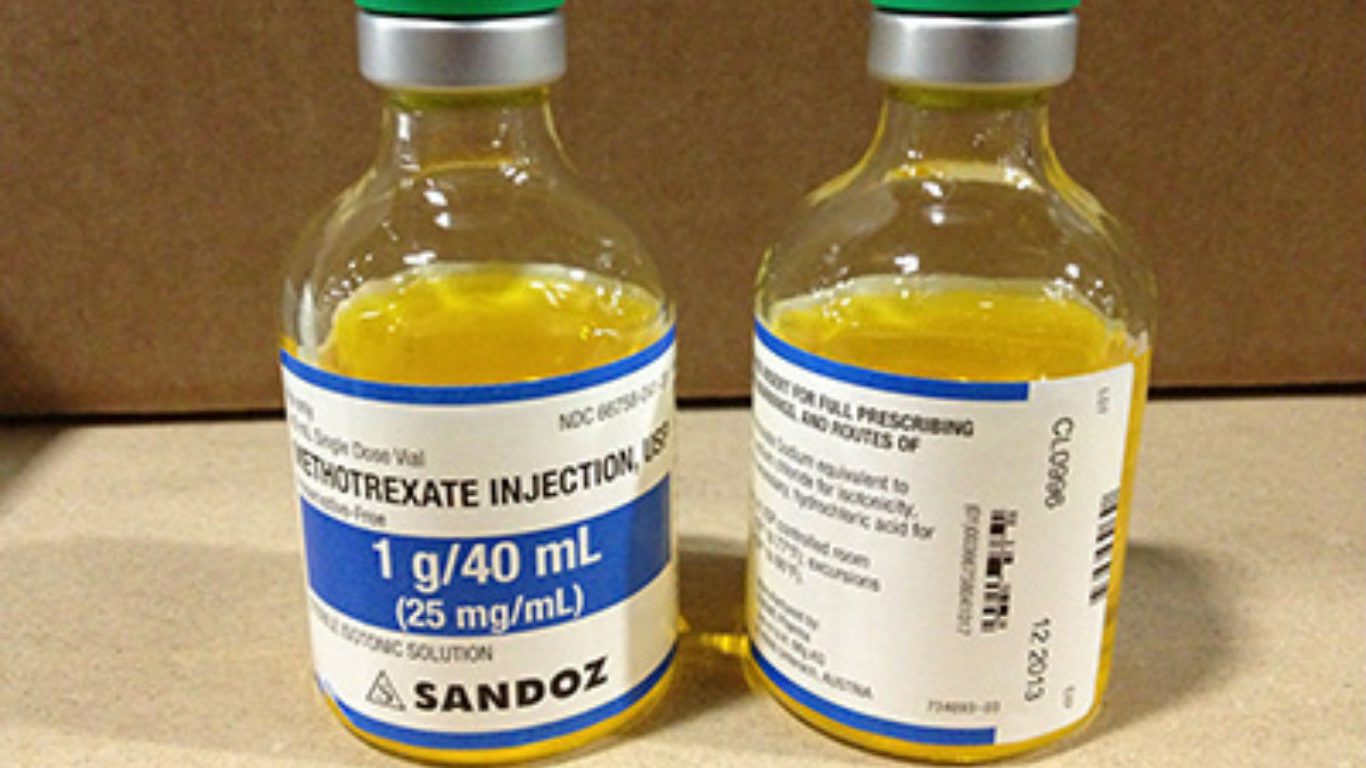
17. Methotrexate
> Common names/types: Trexall, Rasuvo, Otrexup
> Common uses: Cancer, psoriasis, rheumatoid arthritis
> Deadly when: Taken too frequently, combined with probenecid
> Risks: Liver, lung, or kidney damage, death
18. NSAIDs
> Common names/types: Advil, Aspirin, ibuprofen
> Common uses: Pain relief, inflammation
> Deadly when: Combined with blood-thinners
> Risks: Heart attack, stroke, Reye syndrome
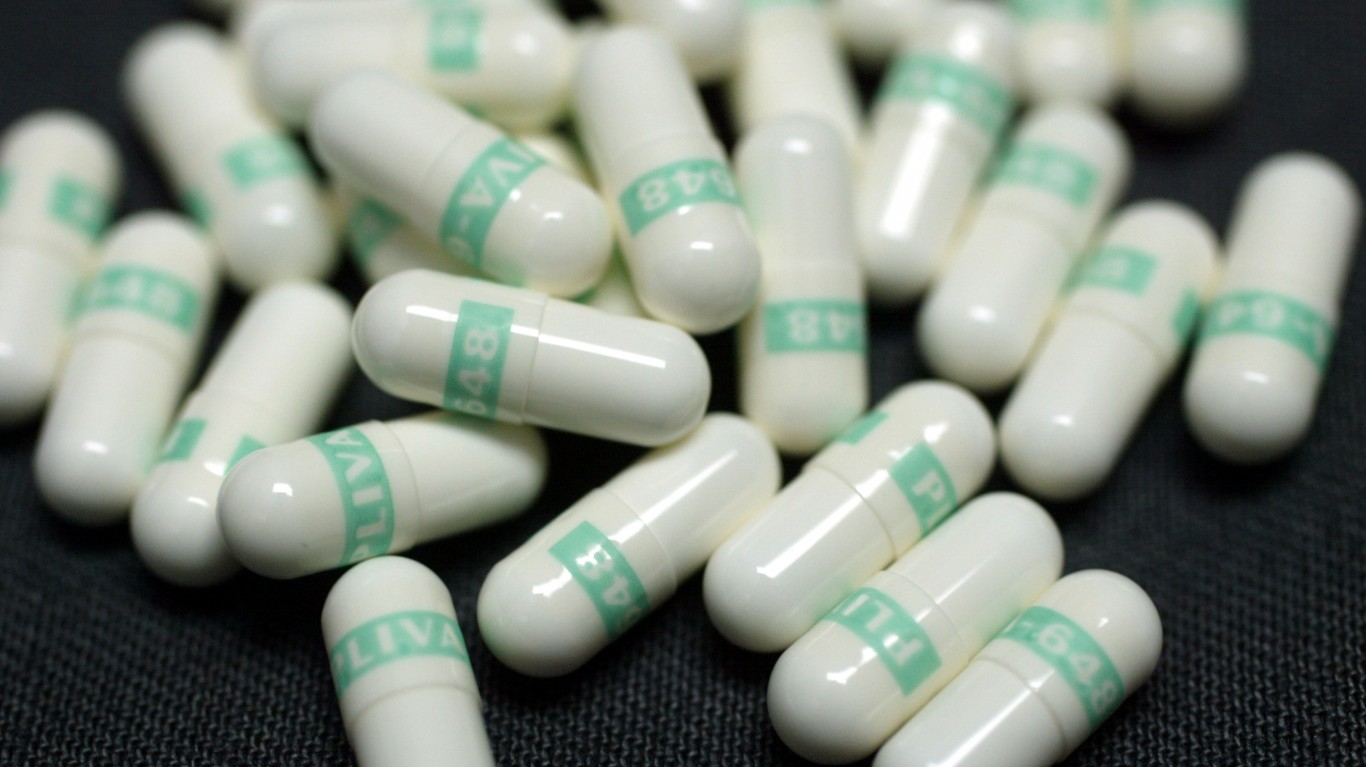
19. Selective serotonin reuptake inhibitors
> Common names/types: Celexa, Zoloft, Prozac, Lexapro
> Common uses: Depression
> Deadly when: Combined with other drugs that affect serotonin levels
> Risks: Serotonin syndrome, increased risk of suiсide
[in-text-ad-2]
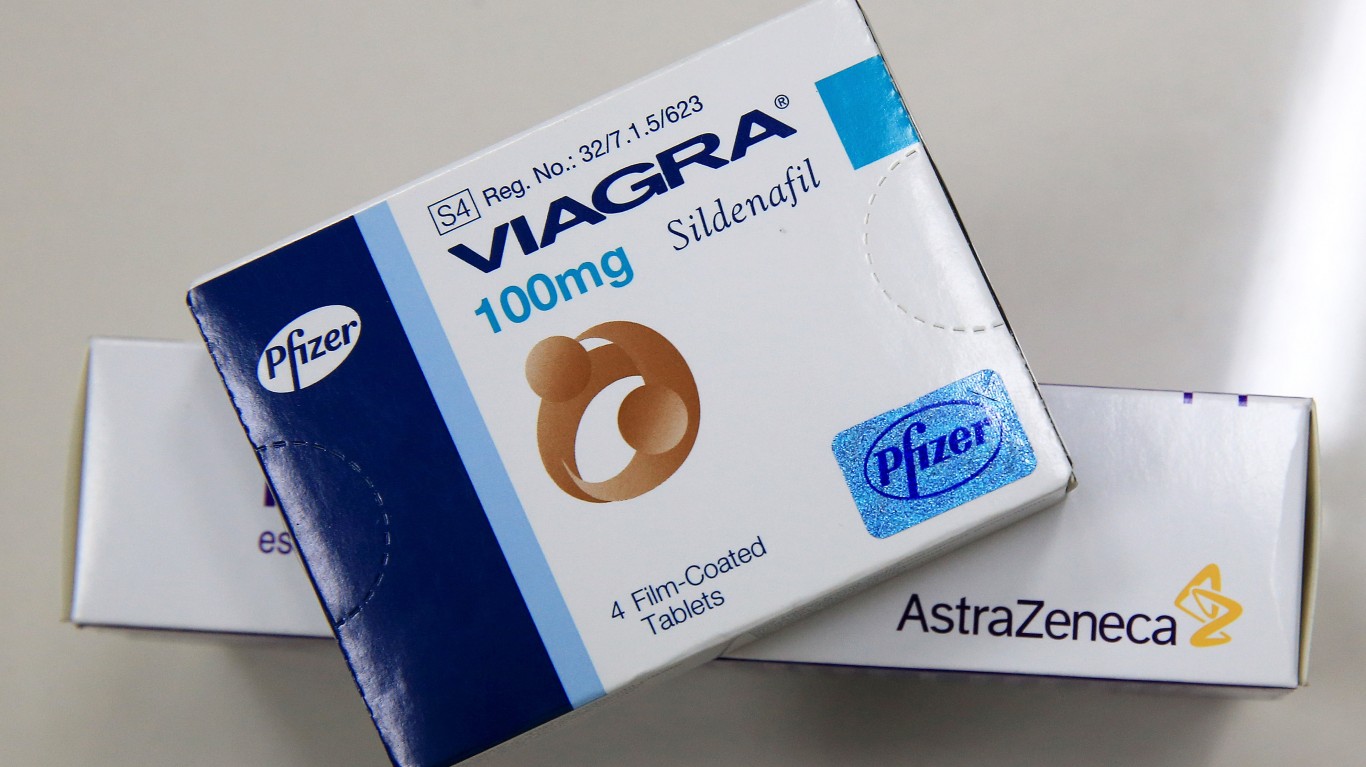
20. Sildenafil
> Common names/types: Viagra, Revatio
> Common uses: Erectile dysfunction
> Deadly when: Combined with isosorbide mononitrate
> Risks: Death, dramatic blood pressure drop
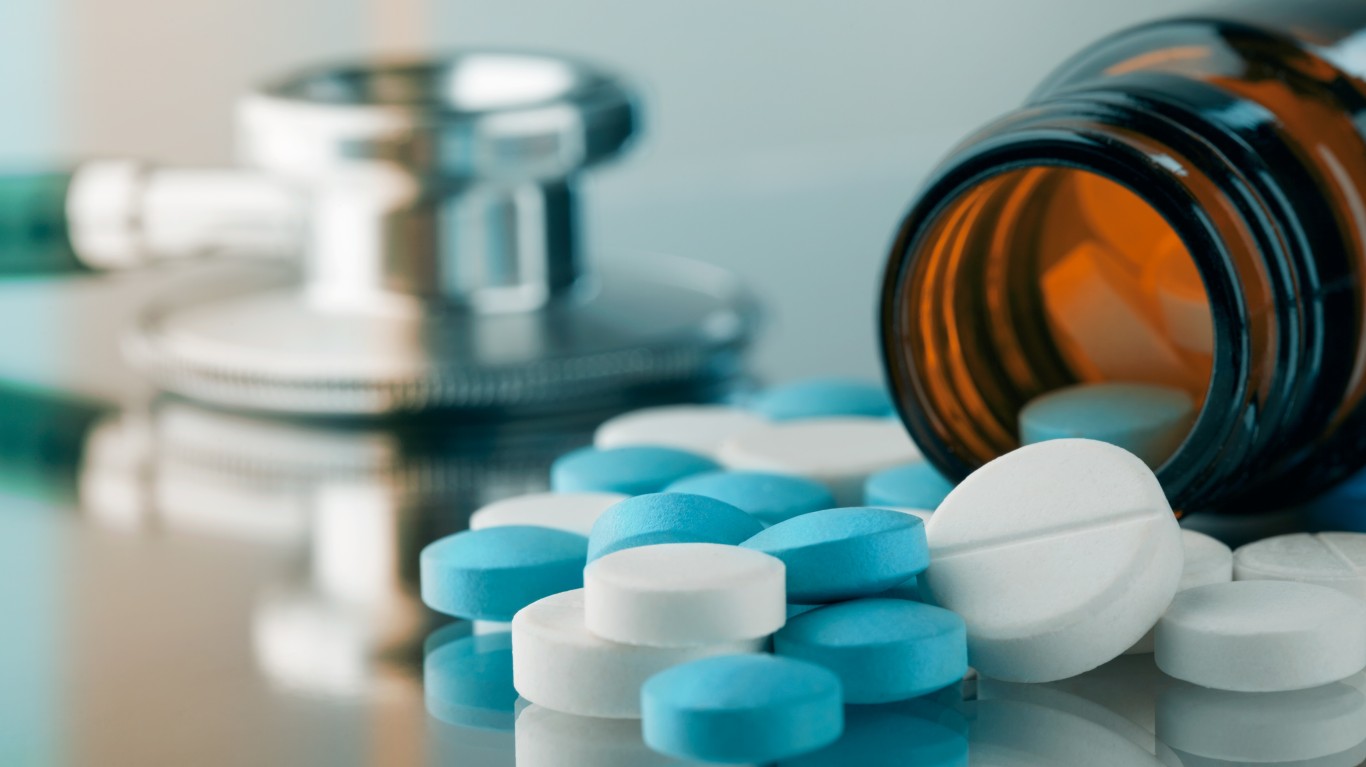
21. Spironolactone
> Common names/types: Aldactone, CaroSpir
> Common uses: High blood pressure
> Deadly when: Combined with potassium chloride
> Risks: Hyperkalemia
[in-text-ad]
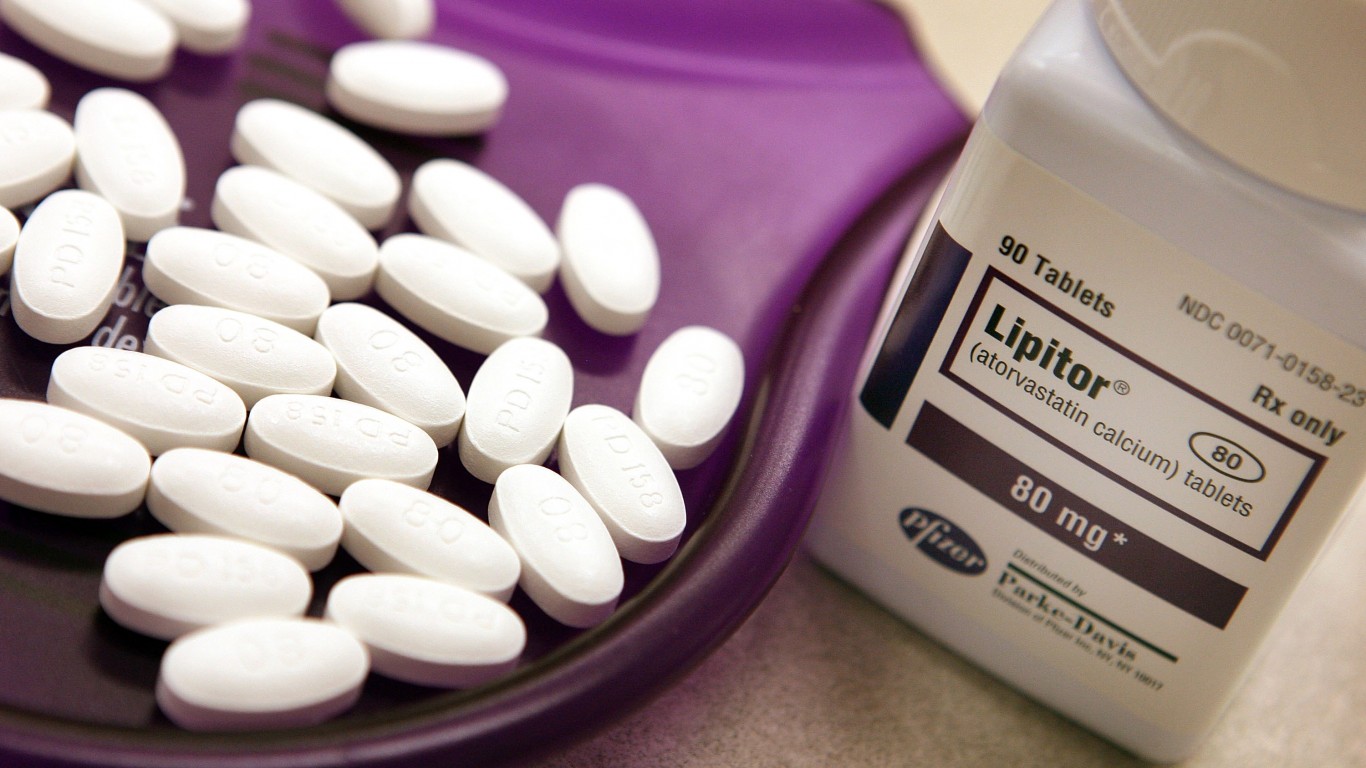
22. Statins
> Common names/types: Lipitor, Lescol, Crestor
> Common uses: Heart disease
> Deadly when: Combined with fluconazole
> Risks: Muscle weakness and kidney damage or failure,
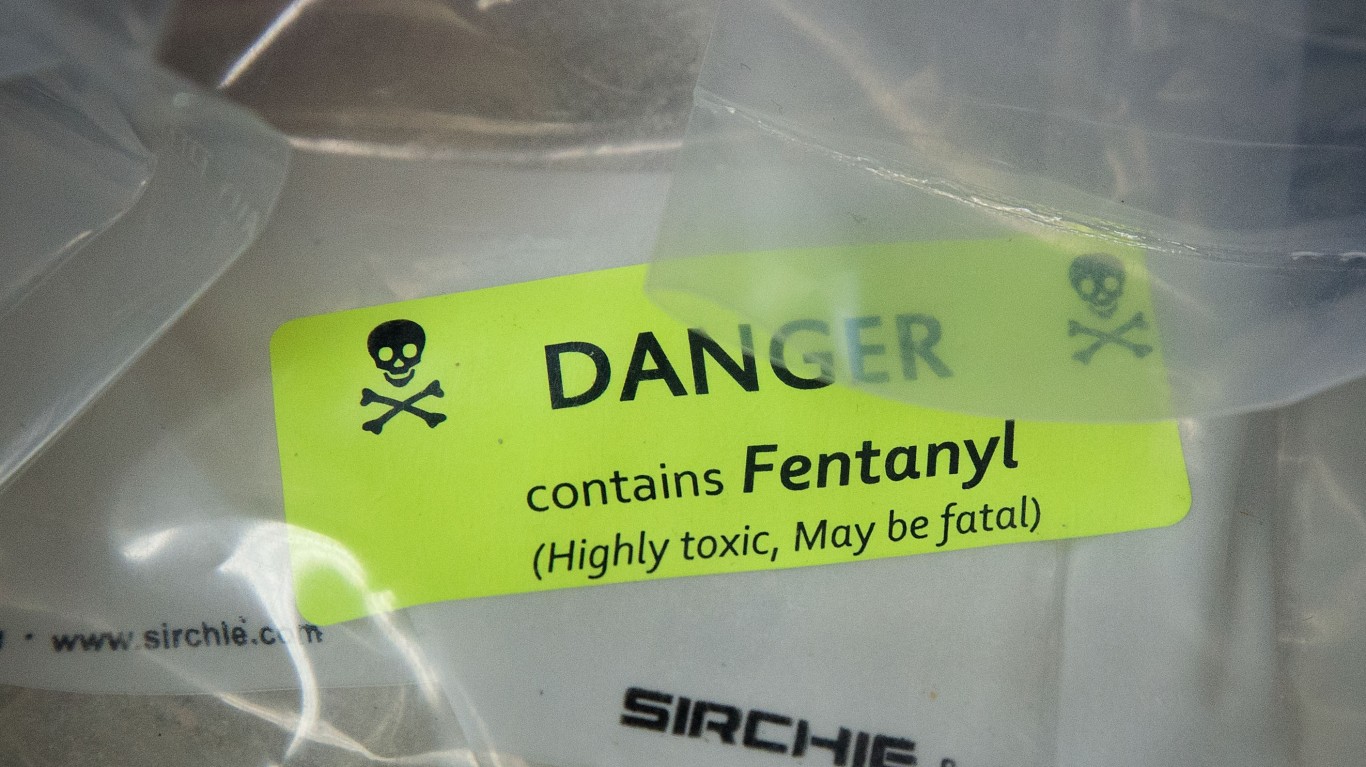
23. Synthetic opioids
> Common names/types: Fentanyl, Actiq, Duragesic, Meperidine, Methadone
> Common uses: Pain relief
> Deadly when: Taken in excess, combined with cocaine and other drugs
> Risks: Accidental overdose

24. TMP/SMX
> Common names/types: Bactrim, Sulfatrim
> Common uses: Antibiotic
> Deadly when: Combined with antihypertensive agents
> Risks: Hyperkalemia
[in-text-ad-2]
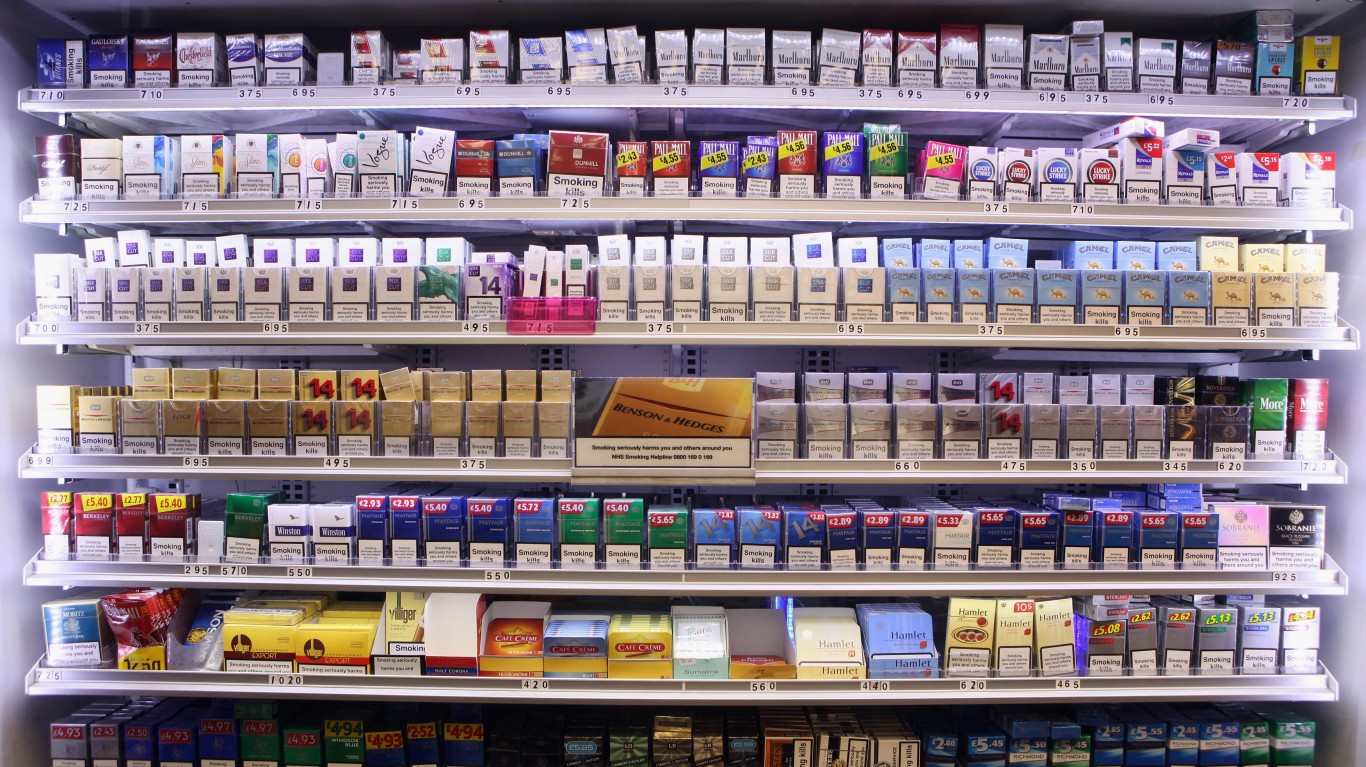
25. Tobacco
> Common names/types: Cigarettes, cigars, pipe tobacco, chew
> Common uses: Stimulant
> Deadly when: Used over time
> Risks: Lung disease, heart disease, cancer
Are You Ahead, or Behind on Retirement? (sponsor)
If you’re one of the over 4 Million Americans set to retire this year, you may want to pay attention.
Finding a financial advisor who puts your interest first can be the difference between a rich retirement and barely getting by, and today it’s easier than ever. SmartAsset’s free tool matches you with up to three fiduciary financial advisors that serve your area in minutes. Each advisor has been carefully vetted, and must act in your best interests. Start your search now.
Don’t waste another minute; get started right here and help your retirement dreams become a retirement reality.
Thank you for reading! Have some feedback for us?
Contact the 24/7 Wall St. editorial team.
